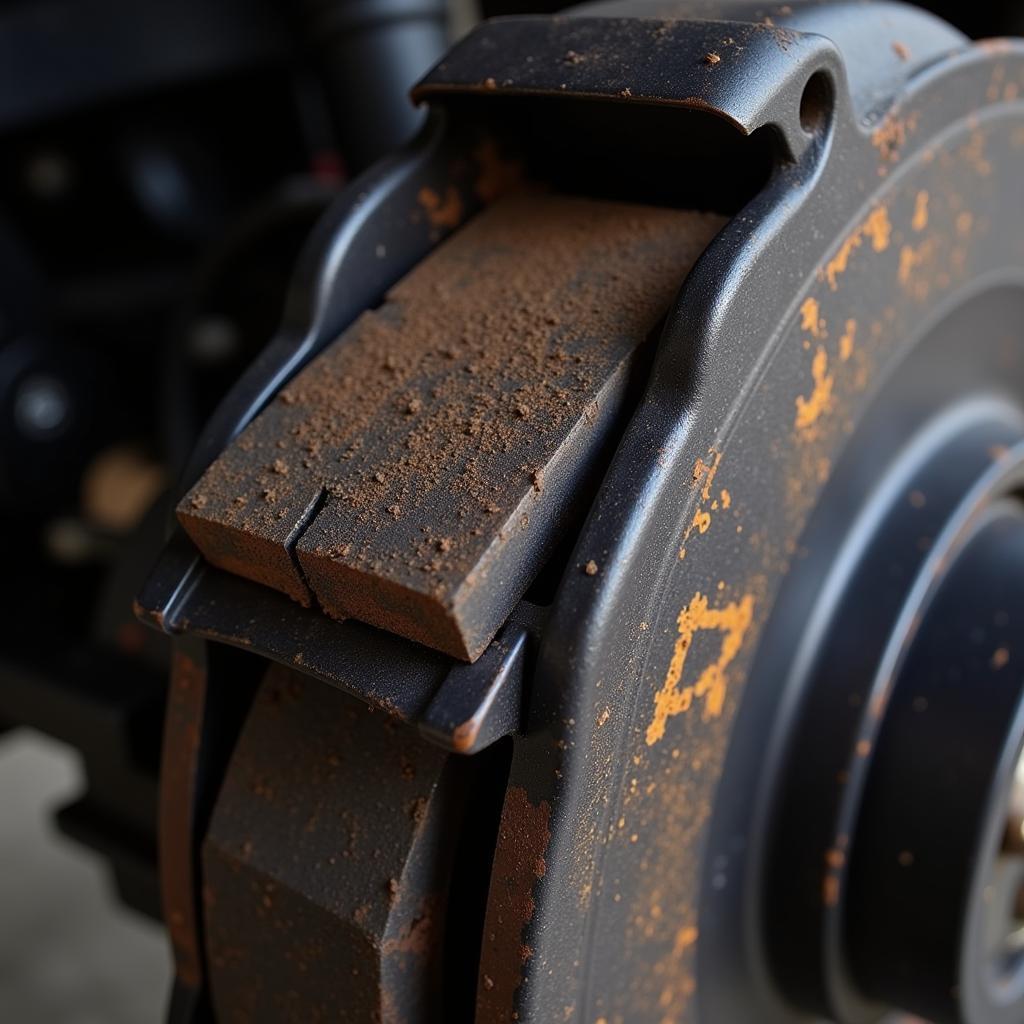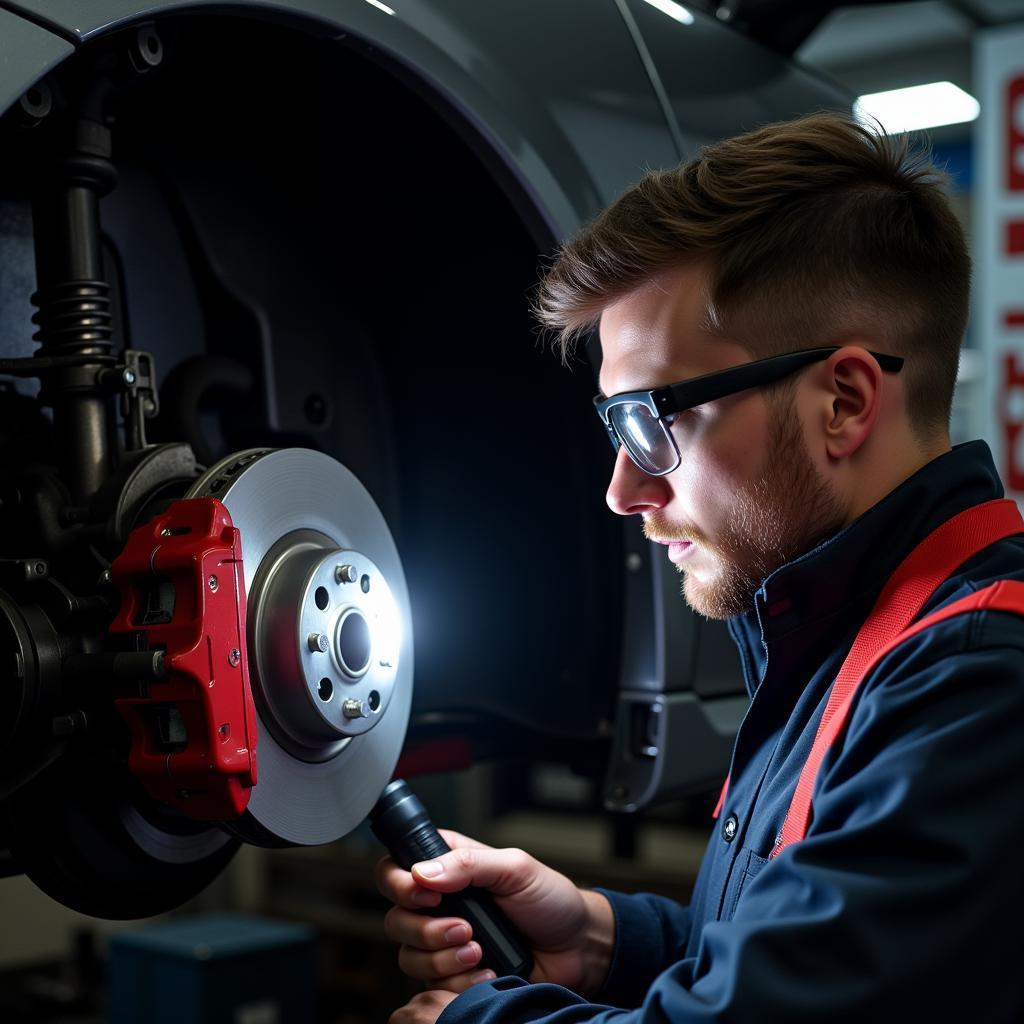That grinding or squealing noise when you hit the brakes? It’s your car trying to tell you something important: your brake pads are wearing thin and need attention. Ignoring this warning can lead to costly repairs and compromise your safety on the road. This article will guide you through the common causes of brake pad warning sounds, what to do when you hear them, and how to prevent future issues.
What Causes Brake Pads Warning Sounds?
Brake pads are designed to wear down over time. They’re made from a friction material that rubs against the brake rotor to slow or stop your vehicle. Here are the most common reasons why your brake pads might be making noise:
- Worn Brake Pads: The most likely culprit. Most brake pads have a built-in metal wear indicator designed to make a high-pitched squealing sound when the friction material is low.
- Dust and Debris: Dirt, road grime, or even small stones can get lodged between the brake pad and rotor, causing grinding or scraping noises.
- Glazed Brake Pads: Overheating brakes from hard braking can cause the brake pad surface to harden, resulting in a glazed finish that creates a squealing sound.
- Cheap Brake Pads: Lower quality brake pads may use inferior materials that are prone to noise, especially in wet conditions.
 Worn Brake Pads with Indicator
Worn Brake Pads with Indicator
What to Do When You Hear the Warning Sound
If you hear any unusual noises coming from your brakes, don’t ignore them! Here’s what to do:
- Identify the Sound: Is it a high-pitched squeal, a grinding noise, or something else?
- Assess the Severity: How often do you hear the sound? Does it happen every time you brake, or only in certain situations?
- Schedule an Inspection: Contact a trusted mechanic specializing in brake repair as soon as possible for a thorough inspection.
 Brake Inspection by Mechanic
Brake Inspection by Mechanic
Can I Drive with Brake Pad Warning Sounds?
While you might be tempted to postpone a trip to the mechanic, driving with worn brake pads is extremely dangerous. Here’s why:
- Increased Stopping Distance: Worn brake pads reduce friction, making it take longer to stop your vehicle, especially at high speeds.
- Damage to Rotors: Driving with worn pads will damage the brake rotors, leading to costly repairs.
- Brake Failure: In extreme cases, ignoring brake pad warning signs can lead to complete brake failure, putting you and others at serious risk.
How to Prevent Brake Pad Warning Sounds
Proactive maintenance is key to preventing premature brake wear and extending the lifespan of your brake system. Here are some preventative measures:
- Regular Brake Inspections: Have your brakes checked at least once a year or as recommended in your car’s owner’s manual.
- Avoid Hard Braking: Anticipate stops and slow down gradually whenever possible.
- Quality Brake Pads: Invest in high-quality brake pads from reputable brands.
- Brake Fluid Flush: Follow the recommended service intervals for brake fluid flushes to maintain optimal brake system performance.
For more information on specific brake warning light issues, you can visit these resources:
Conclusion
Addressing brake pad warning sounds promptly is crucial for your safety and the longevity of your vehicle. Remember, ignoring these warnings can result in more severe issues and costly repairs down the line. By staying proactive with brake maintenance and seeking professional help when needed, you can ensure optimal braking performance and peace of mind on the road.
